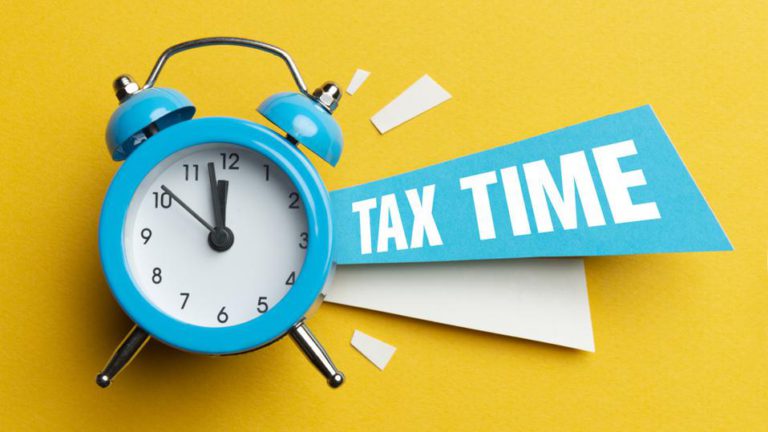The tax you pay on your earnings is known as income tax. A person who spent at least 60 days in India during the previous tax year and at least 365 days in India during the preceding four years is subject to income tax.
Individuals, Hindu Undivided Families, businesses, corporations, and other similar entities are all required to pay income tax in India. The Income Tax Act of 1961 establishes regulations for the administration, collection, and recovery of income tax. Despite the fact that you pay income tax on a monthly basis, it is computed annually.
How to Calculate Taxable Income on Salary?
It is essential to gather all the details required to file your Income Tax Returns before computing your taxable income on salary. You will then have to calculate your total taxable income, followed by the calculation of final tax refundable or payable. To calculate the final tax, you will have to use the applicable tax rates before subtracting taxes already paid through advance tax or TCS/TDS from the tax amount due.
The income tax regulations allow individuals to derive income from five sources, viz. Income from Salary, Income from Business or Property, Income from Capital Gains, Income from House Property, and Income from Other Sources. Each income derived by an individual must fall under one of the aforementioned categories.
Procedure for the Calculation of Taxable Income on Salary
- Gather your salary slips along with Form 16 for the current fiscal year and add every emolument such as basic salary, HRA, TA, DA, DA on TA, and other reimbursements and allowances that are mentioned in your Form 16 (Part B) and salary slips.
- The bonus received during the financial year must be added for the income that is being calculated.
- The total is your gross salary, from which you will have to deduct the exempted portion of House Rent Allowance, Transport Allowance (for which the maximum exemption is Rs.19,200 per year), Medical reimbursement (for which the maximum exemption is Rs.15,000), and all other reimbursements provided the actual bills in respect of the expenses incurred.
- The result is your net income from salary.
Refund of Income Tax for Salaried Individuals
Salaried persons can claim an income tax rebate under Section 87A of the Income Tax Act, 1961, according to the Union Budget 2019. Individuals earning less than Rs. 5 lakh are eligible for this refund, which permits them to pay a somewhat lesser tax amount. Individuals in the lower income group can use this refund to minimise their tax obligations.
For the fiscal year 2019-20, salaried persons are eligible to receive the Section 87A rebate:
- A resident of India is required.
- After all deductions under Section 80, the total income shall not exceed Rs. 5 lakh.
This rebate limit is set at Rs. 12,500. This means that if your total tax payable is less than Rs. 12,500, then the total amount will be rebate under Section 87A.
Income Tax Slab for Salaried person (below 60 years of age) and HUF – FY 2019-20
| Income Tax Slabs | Rate of Tax |
| For individuals with income of up to ₹2.5 Lakh | Nil |
| For Individuals with income ranging between ₹2,50,001 and ₹5 Lakh | 5% of the total income above ₹2,50,000 |
| For Individuals with income ranging between ₹5,00,001 and ₹10 Lakh | ₹12,500+ 20% of the total income above ₹5 Lakh |
| For Individuals with income above ₹10 Lakh | ₹1,12,500+ 30% of their total income above ₹10 Lakh |
Income Tax Exemptions for Salaried Employees
Salaried individuals below the age of 60 years are eligible to avail various tax exemptions, as specified under Section 80 of the Income Tax Act. Following is a table illustrating the applicability of these income tax exemptions along with their limits:
Section 80C – On earnings from –
- Tax saving fixed deposits
- National Savings Certificate
- Equity Linked Savings Scheme
- National Pension Scheme
- Employees Provident fund
- Public Provident Fund
- Senior Citizens Savings Scheme
- Sukanya Samriddhi Yojana, etc.
Limit – Maximum exemption limit of up to ₹1.5 Lakh.
Section 80CCC – On the deposited amount in LIC annuity plans.
Limit – Maximum exemption limit of up to ₹1.5 Lakh.
Section 80TTA – On interest earned from the bank savings account
Limit – ₹10,000
Section 80GG – Rent payment when the individual does not earn House Rent Allowance
Limit – The lower amount between –
- Rent paid – (10% of total income)
- 25% of the total income c) ₹5000 per month
Section 80E – Total interest paid on education loan
Limit – No limit
Section 80EE – Home loan interest for first-timers
Limit – ₹50,000
Section 80CCG – Investment in the equity products under the Rajiv Gandhi Equity Scheme
Limit – The lower amount between – a) ₹25,000 b) 50% of the investment amount in equity schemes.
Section 80D – Health insurance policy premium for self and family
Limit –
- ₹25,000 for self, spouse and dependent children
- ₹25,000 (for self, spouse and dependent children) + ₹25,000 for parents
- ₹25,000 (for self, spouse and dependent children) + up to ₹50,000 (for parents above 60 years of age)
- Up to ₹50,000 (self, spouse and dependent children with the eldest member above 60 years of age) + up to ₹50,000 (for parents above 60 years of age)
Section 80DDB – Medical treatment of dependent individuals suffering from specified diseases.
Limit –
- For individuals below 60 years of age, the deduction is available for up to ₹ 40,000.
- For individuals above 60 years of age, the deduction limit is at ₹1,00,000.
Section 80GGC – Contribution to political parties
Limit – No limitations for payment methods apart from cash.
Section 80G – Contributions to charitable institutions and certain relief funds.
Limit – Few charitable donations are eligible for 50% deductions, and few are eligible for 100% deductions.

